
Judge Tells 23XI and FRM: “You Can’t Have It Both Ways”
23XI Racing
and
Front Row Motorsports
clashed with NASCAR on Friday in
The most recent exchange of sharp comments amid this ongoing intense legal dispute.
Judge Paul Victor Niemeyer, Judge Steven Agee, and Judge Stephanie Thacker were the ones hearing oral arguments at the United States Court of Appeals in Richmond, Virginia.
This appeal focuses on NASCAR attempting to reverse the decision.
a preliminary injunction awarded to 23XI and FRM in December 2024, permitting them to compete as charter teams
Without being bound by the release clause (the right to sue NASCAR) in the 2025 Charter Agreement. They have criticized this agreement for containing such terms, arguing that these provisions amount to antitrust violations when considered alongside other elements.
It was
NASCAR’s chief legal representative, Christopher Yates
, and
Jeffrey Kessler, who serves as lead counsel for both teams
, alternating as they present their arguments.
NASCAR takes the floor
Yates went first and explained that there’s nothing preventing the teams from racing even if the injunction were overturned, which could result in 23XI Racing and FMR losing their recently acquired licenses during the season.
They received an offer of a contract, but they declined it,” stated Yates. He further explained that this means “there is currently no contractual connection between them.” However, he pointed out that “the district court’s injunction mandates the creation of a contract, thus altering the current state of affairs.
He countered the allegation that NASCAR functions as an illegal monopoly by highlighting that the charter discussions lasted more than two and a half years. “If they were monopolists, they wouldn’t have negotiated for such a long period,” he stated. He noted that teams did not bring up concerns about the release clause—the right to sue—until after turning down the proposal. The district court used this very release clause as grounds for issuing the injunction, deeming it exclusionary behavior. Furthermore, he asserted that the district courts misinterpreted the circumstances and neglected established precedents in their decision-making process.
During this period, the judges – mainly Judge Niemeyer – posed numerous clarifying questions to NASCAR. Yates’ most compelling argument was that one cannot choose to be bound by an agreement they concurrently claim breaches antitrust laws. Additionally, he argued that the sole motive behind this was the teams seeking to extract greater sums from the governing body.
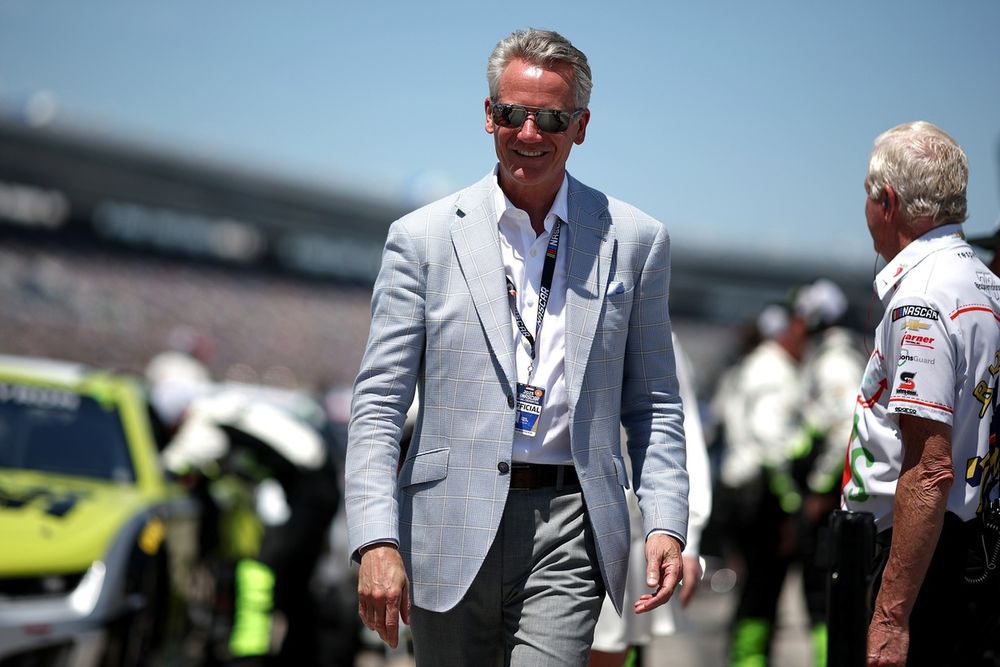
NASCAR Commissioner Steve Phelps
Photo courtesy of: Chris Graythen – Getty Images
The team lawyer argues with the judges.
Kessler had barely begun his introductory remarks when Judge Niemeyer interrupted, stating that he did not grasp Kessler’s main argument. “If you do not wish for the contract, then you should refrain from entering it and file a lawsuit instead. Alternatively, if you agree to the contract, you must accept giving up previous releases.” He referred to Omega during this discussion.
Costco v. Omega
The observation is that you cannot have everything you want simultaneously.
Kessler promptly countered, and although the discussion became somewhat heated, they maintained professionalism. When attempting to address the issue of irreversible damage, Judge Niemeyer intervened once more: “Avoid discussing harm altogether. Stick to the antitrust theory instead. That’s where I see the main concern—whether there’s a strong chance of success.”
The judge additionally noted that the mutual release being contested by 23XI/FRM allows both teams and NASCAR to avoid legal action against each other; hence, neither party can sue NASCAR, nor can NASCAR file lawsuits against these teams. The question raised was whether incorporating such mutual releases into contractual agreements could be considered anticompetitive, as in, would it prevent a monopoly from including them in their contracts?
Kessler responded: “If the release was utilized to sustain the dominant market position–”
Judge Niemeyer immediately countered, saying, “If you choose not to participate, then you can’t simply opt-in when you like, especially with modifications to pursue an antitrust claim… That would be quite a complex legal argument.”
This point was frequently reiterated; however, the rationale behind why these teams find themselves in such a predicament is due to their desperate efforts to retain their charters as they navigate through this legal challenge. This presents quite a delicate equilibrium for them to maintain.
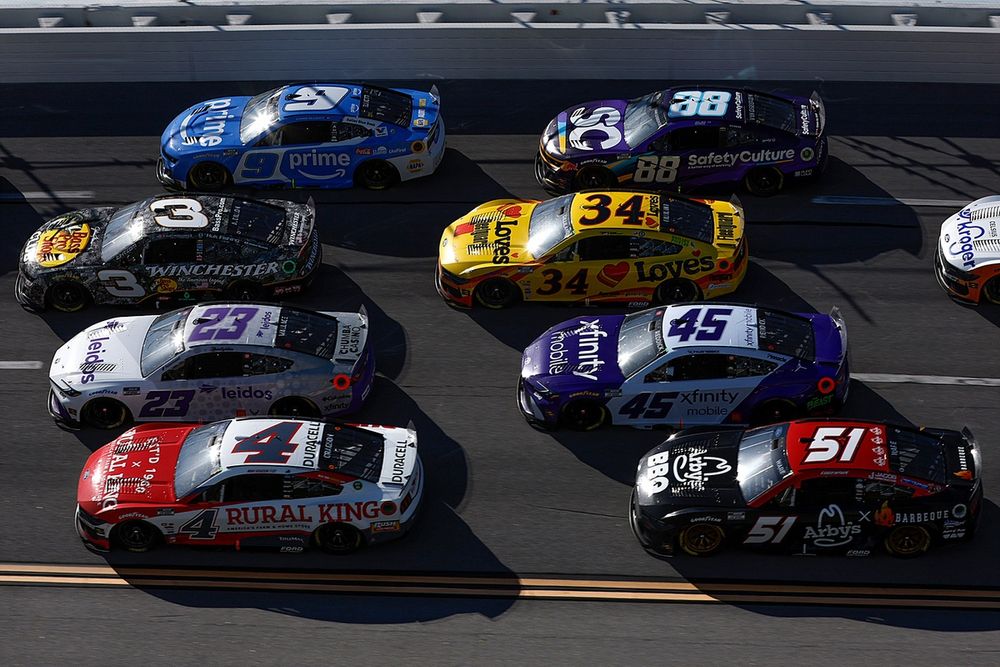
Chase Elliott from Hendrick Motorsports driving a Chevrolet, alongside Austin Dillon representing Richard Childress Racing with his Chevrolet, followed by Bubba Wallace racing for 23XI Racing using a Toyota, and concluding with Noah Gragson competing for Front Row Motorsports in a Ford.
Image courtesy of: Sean Gardner / Getty Images
A fight without precedent
The court contended that the Charter Agreement seems to be more about being “against lawsuits rather than against competition.” They reiterated that if one wishes to maintain their right to sue, they should avoid entering into the agreement altogether.
A separate conversation revolved around the unparalleled aspect of the situation, highlighted by Judge Thacker. Since the introduction of the Sherman Antitrust Act 135 years ago, nothing quite like this case had ever occurred. Kessler acknowledged that this approach had never been taken before; however, he referenced a Mitsubishi case wherein a release was employed to shield anti-competitive practices.
However, the judges persisted with their questions, aiming to link the release to anticompetitive practices. At some juncture, the courtroom inquired, “What remedy are you seeking for your race team? You wish to compete in that series, correct?”
Kessler responds, “We could have met their conditions and accomplished that earlier, Your Honor. The purpose of this release was not that.”
Judge Niemeyer responds with a jest, “So, you’re aiming to become a police officer?”
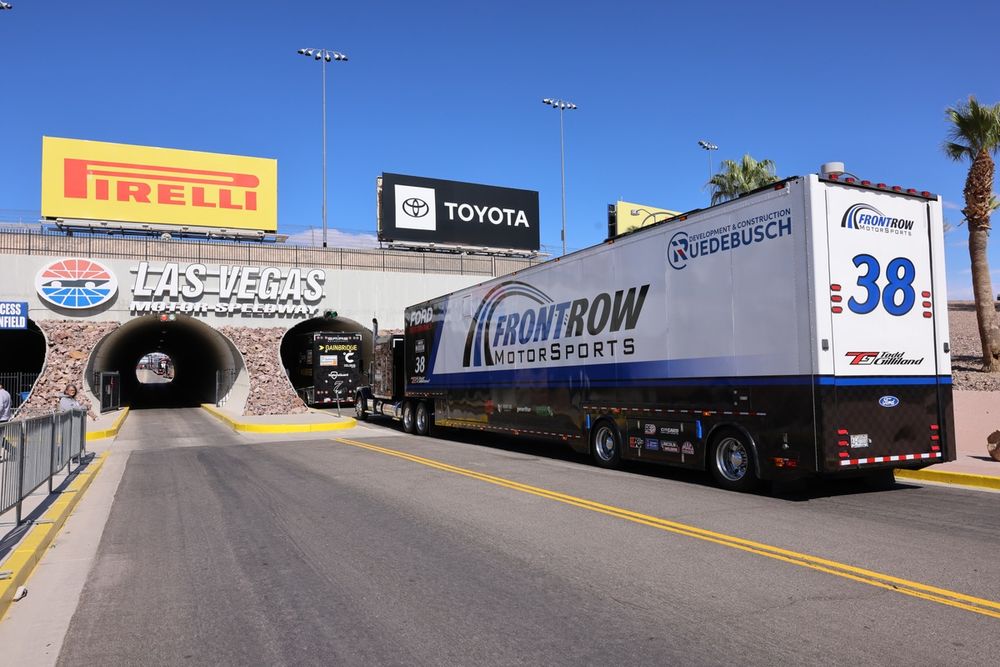
Front Row Motorsports hauler
Image credit: Chris Graythen – Getty Images
Kessler attempted to clarify his point with an example involving a monopolistic apple grower who might adversely affect apple consumers similarly. He explained, “The damage lies in receiving insufficient quantities.” “What we seek,” he continued, “is compensation for—”
However, he was cut off once more by the bench. “Simply declining to sign the agreement and then suing for relief won’t work. The argument that you should be granted the rights under the contract without providing the release is essentially an Omega issue—you’re trying to keep your cake and eat it too.”
Kessler attempted to argue that the damage was irreversible, emphasizing that “it isn’t financially feasible to certify every week.” He contended that operating with unrestricted teams would result in substantial economic losses, potentially jeopardizing sponsorship deals and driver agreements. This scenario might also impair their track performances and deprive them of benefits associated with the Charter Agreement, all while competitors continue to reap these advantages.
What occurs to SHR charters when an injunction is overturned?
Judge Agee attempted to steer the discussion back to the main point as the conversation began veering off towards the basis of the lawsuit. He stated, “I understand this will be an intriguing trial when it happens, which I expect during the proceedings. However, our focus for today should remain solely on the preliminary injunction.”
Judge Niemeyer observed that the injunction is quite limited, focusing solely on the matter of release, and he described the injunction as having some “undesirable aspects.”
Kessler brought up the Omega case again, claiming it doesn’t apply because the teams aren’t trying to invalidate the entire Charter Agreement. But perhaps his most interesting point was the ripple effect that would occur if they suddenly lost their charters.
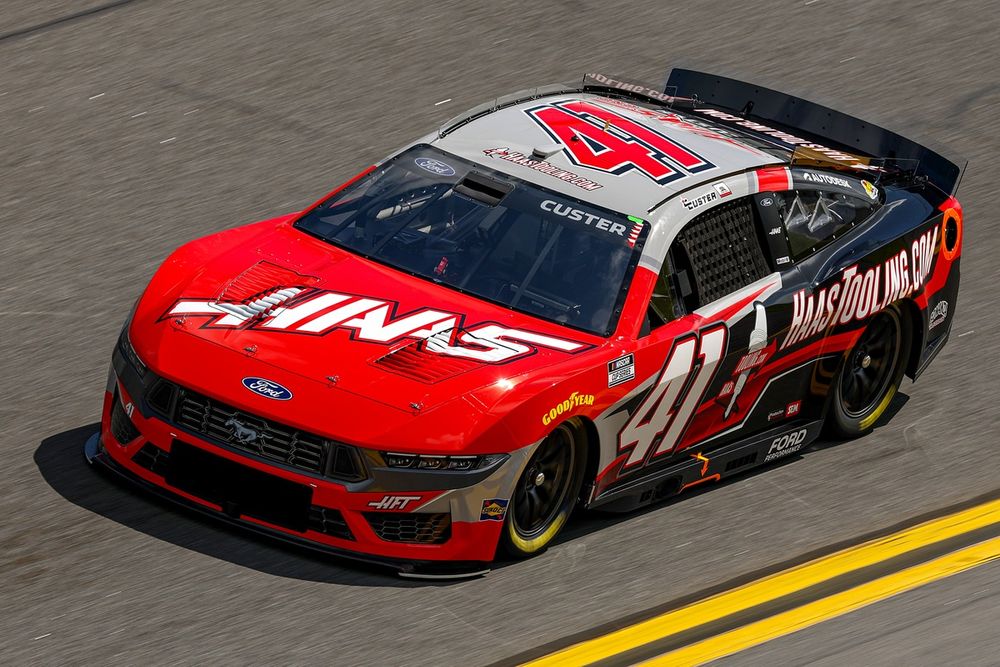
Cole Custer, from the Haas Automation team
Photo credit: Jared C. Tilton/Getty Images
Kessler claimed overturning this mid-season won’t just harm them, but third parties like
Stewart-Haas Racing
SHR transferred a charter to 23XI and another to FRM prior to ceasing operations. The only remaining presence is Gene Haas’s single-car team operating under the Haas Factory Team banner. Kessler highlighted this situation, noting that returning the charters to SHR isn’t feasible since the entity no longer exists.
[SHR] no longer possesses the means to operate a racing team. Therefore, if we were to return his teams, he wouldn’t have any drivers, a pit crew, or anything else essential during the ongoing NASCAR season. Reversing this injunction midway through could create chaos,” stated Kessler. “But if it remains in place until November, we’ll be finished with our current situation and can proceed to a trial where we will either emerge victorious or face defeat.
NASCAR rebuttal
Yates’ counterargument dismissed the presence of any antitrust violations, which wasn’t unexpected. He restated previous arguments emphasizing that NASCAR isn’t barring their participation in the racing series. Nevertheless, he shifted focus to discuss his perspective on potential irreparable damage.
Every day this injunction remains active, NASCAR and the teams suffer,” Yates stated. “NASCAR is affected as it’s compelled into a long-term contract with an entity it prefers not to associate with. Similarly, other teams are impacted since they would receive additional funds if the injunction were lifted. The chartered teams specifically would benefit financially from their larger share of the charter revenue.
Judge Agee posed a competitive inquiry regarding the number of openings and their availability each week. He pointed out that most weeks, aside from the Daytona 500, seldom witness a complete lineup. In response, Yates contended that squads like those competing for 23XI Racing and Front Row Motorsports could easily secure qualification based on performance alone.
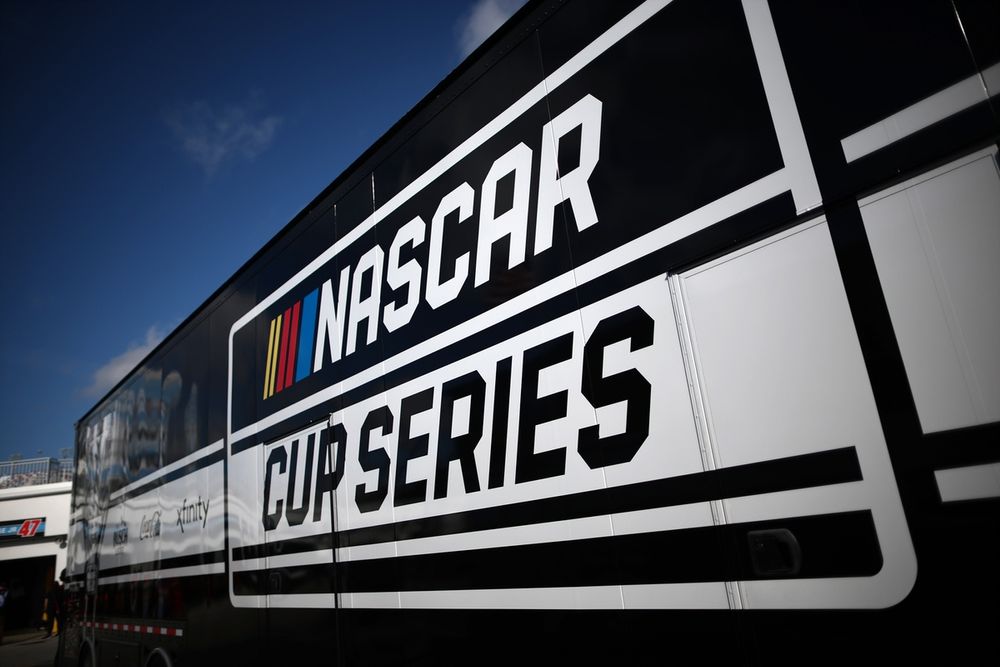
Nascar Cup Series signage
Image courtesy of: Chris Graythen – Getty Images
“Two-thirds of the season remains,” stated Yates. “We strongly encourage the court to take swift action as both NASCAR and other teams are suffering.” He subsequently reiterated the phrase ‘having your cake and eating it too,’ which had been brought up multiple times during the proceedings.
He concurred with the judges’ viewpoint, just as Kessler had previously done, regarding the necessity for mediation. However, Yates appeared pessimistic, asserting that the matter revolves around the conditions set forth in the 2025 Charter Agreement and that NASCAR is reluctant to alter it. “We won’t be rewriting the charter agreement,” stated Yates.
No decision has been reached about the validity of the injunction, but time is running out as the NASCAR season continues unabated. The full hearing is available for you to listen to.
HERE.
Read Also:
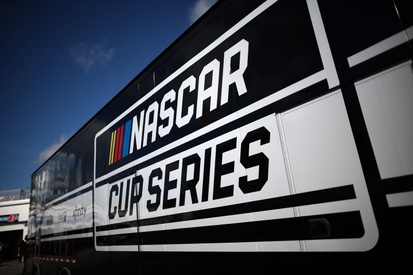
NASCAR claims in recent legal documents that 23XI and FRM “harm” the brand’s image.
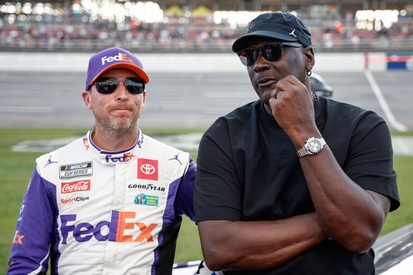
NASCAR counter-sues 23XI and FRM, alleging a plot to “intimidate, pressure, and blackmail” the league.
Share this content:







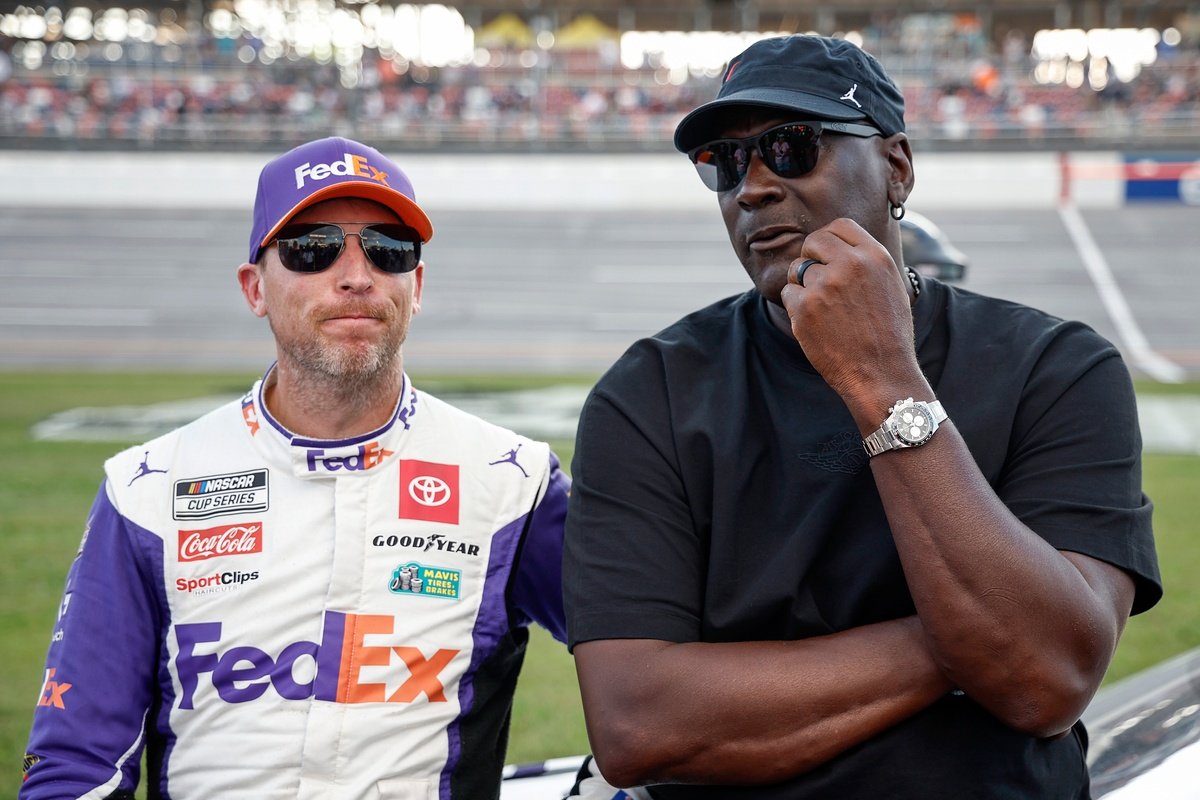
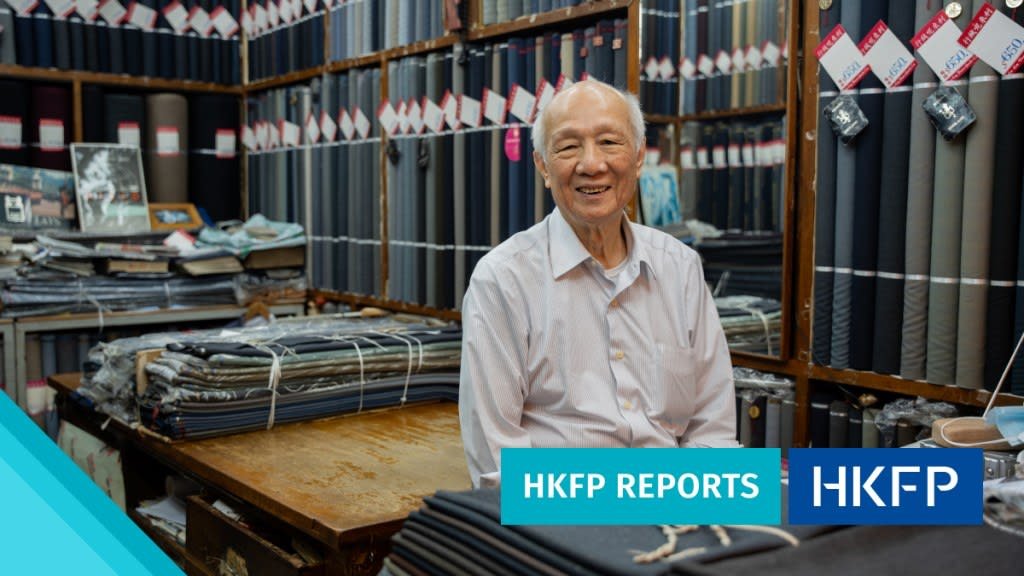










Post Comment